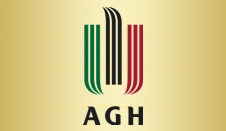Human-Like Knowledge Engineering, Generalization and Creativity in Artificial Neural Associative Systems
Autorzy/Authors: Adrian Horzyk
Wydawnictwo/Publisher: Springer Verlag, AISC 11156, ISSN 2194-5357, ISBN 978-3-319-19089-1, ISBN 978-3-319-19090-7 (eBook), DOI 10.1007/978-3-319-19090-7, Springer, Switzerland, pp. 39-51
Abstract:
This paper presents new approaches to form knowledge and achieve generalization and creativity in a human-like way using artificial associations in artificial neural associative systems (aas-systems). We can assume that knowledge is automatically formed in a human brain that is able to associate many objects, facts, rules, needs and emotions. The brain structure is very specific and does not reflect architectures of today's computers. This paper describes a neuronal structure that is able to represent various data combinations and their sequences in an aggregated form, which allows to recall consolidated facts and rules by triggering various neuron combinations. New combinations of initially triggered neurons recall even new facts and rules as a result of high-level generalization that can be treated as creative behaviour. This paper provides the description of artificial neural associative systems that enable to create knowledge in a human-like associative way and to trigger artificial associations.
Keywords:
associative knowledge engineering, as-knowledge, knowledge representation, generalization, creativity, artificial associative systems, associative neuron, as-neuron, semassel.

